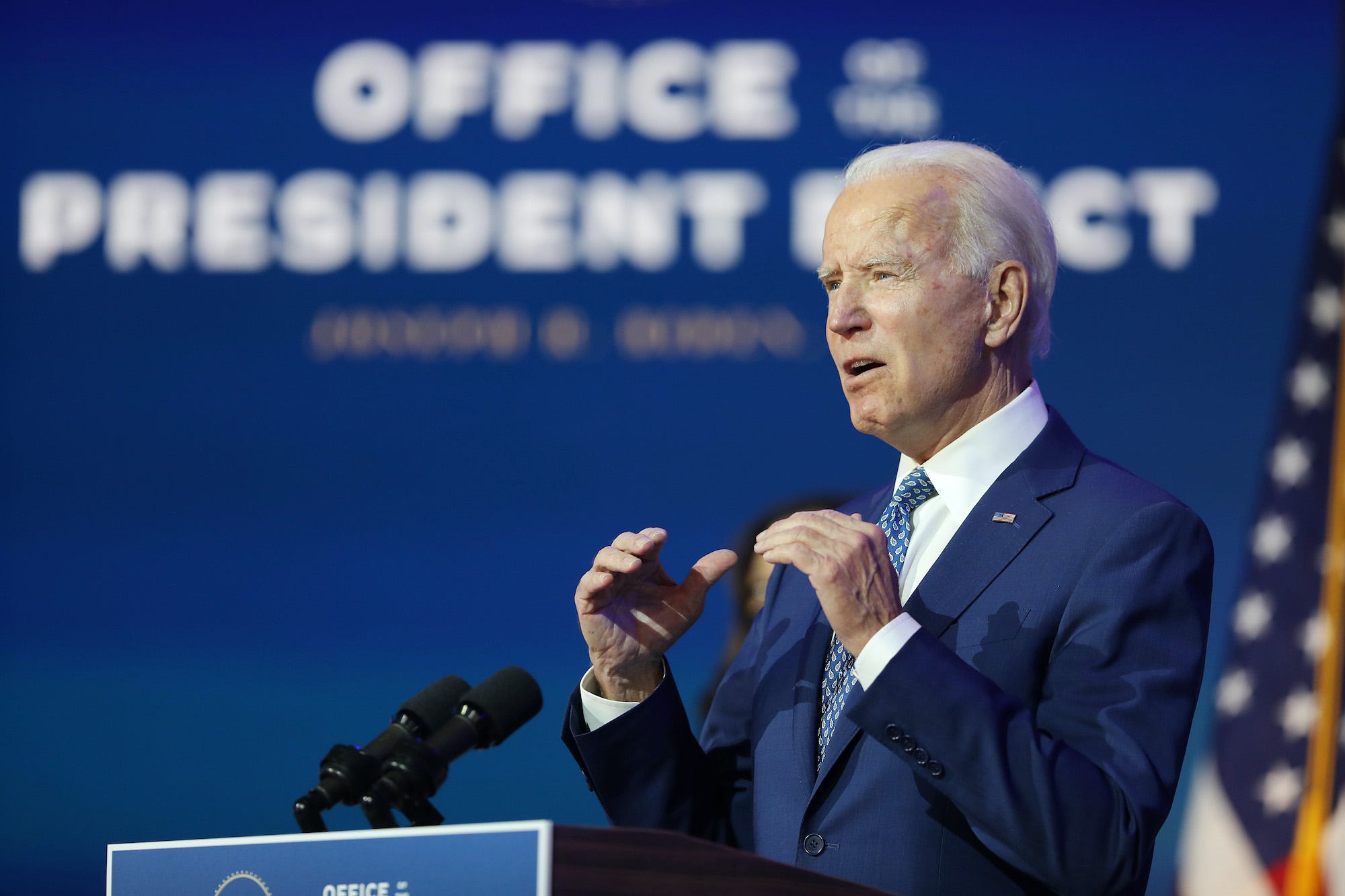
Joe Raedle/Getty Images
- Big banks may see an $11 billion tax hike under Biden’s proposal, according to a new Bloomberg report.
- The increase is a reversal from Trump’s 2017 tax cuts that saved banks billions in the last three years.
- The tax increase may be countered by rising interest rates, a Wells Fargo analyst said.
- Visit Business Insider’s homepage for more stories.
The six largest banks could face an $11 billion tax increase under President-elect Joe Biden’s proposal – a reversal from the billions in savings after President Donald Trump’s 2017 tax cuts, according to Bloomberg.
Biden has said he would increase the corporate tax rate to 28%, from its current 21%. The soon-to-be-president has also said the proposed tax increase likely wouldn’t come until at least 2022, as the economy continues to recover from the COVID-19 pandemic.
Wells Fargo analyst Mike Mayo told Bloomberg that a tax increase would be a “concrete negative for banks.” But he added that the current low interest rates are a “much bigger” impact to banks, and anything that would increase interest rates is a positive.
Biden’s transition team did not immediately respond to Insider’s request for comment.
Banks can't claim most deductions, so the the 2017 Tax Cuts and Jobs Act benefited them more than others companies and industries, Bloomberg reported. In all, the top six banks received $42 billion in tax savings over the last three years.
Biden also plans to raise taxes on individual income, capital gains and payroll taxes on individuals making more than $400,000, according to the Tax Foundation, an independent tax policy nonprofit. In all, Biden's proposals would raise tax revenue by $2.8 trillion over the next decade, and would lower gross domestic product by 1.62% in the long-term, the Foundation calculated.
